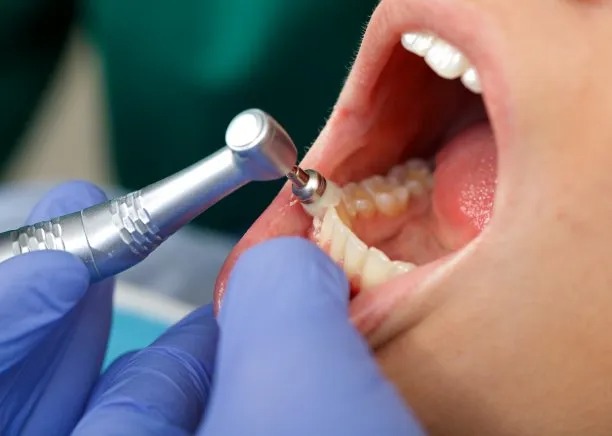Summary: Dental fillings are a common dental procedure used to restore teeth damaged by decay or trauma. While these treatments are generally straightforward, there are essential precautions to ensure a successful experience and maintain optimal oral health. This article outlines four key areas of focus: effective communication with your dentist, understanding the filling materials, the importance of aftercare, and maintaining regular dental check-ups. By taking these precautions, patients can significantly enhance their dental filling experience, reduce anxiety, and promote long-term oral health.
1. Effective Communication with Your Dentist

Open and honest communication with your dentist is crucial for a successful dental filling experience. Before the procedure, ensure you inform your dentist about any allergies, sensitivities, or previous dental problems that may affect your treatment. This information helps the dentist choose the right materials and techniques for your specific needs.
Additionally, do not hesitate to ask questions regarding the procedure, including what to expect during and after the filling. Understanding the process can alleviate anxiety and make you feel more at ease in the dental chair. Knowing the potential side effects or complications can also prepare you for aftercare.
Lastly, it’s important to express any concerns you have about pain management during the procedure. Dentists can offer sedation options or numbing agents tailored to your comfort level. A well-informed patient makes for a smoother, less stressful experience during dental work.
2. Understanding the Filling Materials
Dental fillings come in various types, including amalgam, composite, gold, and porcelain. Each material has its pros and cons, and understanding these characteristics can help you make informed choices. For instance, amalgam fillings are durable and cost-effective, while composite fillings provide an aesthetic advantage for visible teeth.
Ask your dentist to explain the benefits of the recommended material for your specific situation. Factors such as location of the cavity, extent of decay, and your personal preferences all play a role in material selection. This discussion can also include the lifespan and maintenance of different types of fillings to help you understand their longevity.
Furthermore, knowing the environmental and health implications of the materials used is paramount. Some people may prefer composite materials due to concerns about mercury in amalgam. It’s crucial to have a thorough discussion about your options to ensure you feel comfortable with your choice.
3. The Importance of Aftercare
After receiving a dental filling, following proper aftercare practices is essential to ensure successful healing and optimal oral health. Initially, avoid eating until the numbness has fully worn off to prevent accidental biting of the inside of your cheek or tongue. This usually lasts a few hours, and patience is key during this time.
Maintaining an excellent oral hygiene routine post-filling is vital. Brush gently around the filling to avoid dislodging it and floss carefully to prevent plaque buildup. You may need to temporarily adjust your brushing technique or the products you use, depending on the material of your filling.
Additionally, observe your mouth for any unusual sensations or pain after the procedure. Some discomfort is expected, but persistent or sharp pain may indicate a problem that requires immediate dental attention. Regular follow-ups with your dentist can help monitor the condition of the filling and overall oral health.
4. Maintaining Regular Dental Check-Ups
Regular dental check-ups are an integral part of maintaining oral health post-filling. These visits allow your dentist to examine the integrity of your fillings and detect any potential issues early. Its recommended to schedule check-ups every six months, but your specific needs may require a different frequency.
During your check-up, discuss any concerns or changes you might have experienced since your last visit. If you notice changes in your bite, sensitivity, or the filling itself, be proactive in addressing these issues with your dentist. Regular assessments can extend the lifespan of your fillings and overall dental health.
Moreover, these check-ups are also an opportunity for professional cleaning, which can prevent further decay and gum disease. A solid relationship with your dental provider ensures that you receive the best advice and care tailored to your unique oral health needs.
Summary:
In conclusion, following essential precautions for successful dental filling experiences is vital for maintaining optimal oral health. By prioritizing effective communication with your dentist, understanding filling materials, adhering to aftercare guidelines, and keeping up with regular check-ups, patients can significantly enhance their dental health journey.
This article is compiled by Vickong Dental and the content is for reference only.
Vickong Dental
Vickong Dental is a large medical group established in Hong Kong in 2008 by professors from well-known medical universities in Guangdong and Hong Kong, as well as medical doctors from key national '985' universities (including Master's supervisors and senior professors). The chain of branches brings together expert dentists with PhDs and Master's degrees from Hong Kong and Mainland China, committed to providing high-quality dental treatment.
"Vickong Dental Practices the University Motto of 'Healing and Serving Society,' with a Stable Operation for Sixteen Years. It Has Been honored with Hong Kong Enterprise Leaders's Choice,' and is a Global Trusted Implant Center for the Nobel Implant System. Recommended by Hong Kong Metro Broadcast and Guangdong Television, it Serves Customers from Over Thirty Countries and Regions, Gaining the Trust and Favor of Citizens from the Guangdong-Hong Kong-Macau Greater Bay Area and Surrounding Cities.

Thousands of customers' unanimous praise
The most recognized and highly recommended dental service by customers in the Guangdong-Hong Kong-Macau Greater Bay Area
We Ensure You Receive Detailed Care and Attention Here
Hong Kong standards, Shenzhen prices, Your Trusted English-speaking dentists

Vickong Dental Medical-Grade Instrument Disinfection Process
Vickong Dental Medical-Grade Instrument Disinfection Process

Vickong Dental Chain: A Warm and Comfortable Environment for Treatment






Appointment Hours

Q&A
Why choose Vickong Dental?
Vickong Dental practices the university motto 「Medicine to Benefit Society」, with each branch bringing together highly qualified dentists with doctoral and master’s degrees from Hong Kong and the Mainland, and has maintained seventeen years of steady operation。Recipient of 「2024 Hong Kong Enterprise Leaders Brand」, 「2025 Hong Kong Enterprise Leaders Brand」, a Nobel Biocare Global Trusted Implant Center, and a brand recommended by Metro Radio Hong Kong and Guangdong TV。
To date, we have served customers from more than thirty countries and regions,earning exceptionally high word-of-mouth recognition and trusted recommendations from residents across the Guangdong-Hong Kong-Macao Greater Bay Area and surrounding cities
We have eight major branches in Zhuhai、Shenzhen,and a consultation and service assurance center in Hong Kong,so you can book a free consultation at any time for any questions,which is very reassuring.
If I do not accept the quotation after the CT scan, will I be charged??
No! As long as the actual treatment has not started, you will not be charged any fees.
Will there be any additional charges during the treatment process?
No, there won’t be any additional charges. Before treatment begins, we will clearly explain the treatment plan and its corresponding fees. Only after the patient agrees and signs the consent form will we proceed with the dental service.
Can I pay in Hong Kong dollars?
Yes. Vickong Dental accepts payment in Hong Kong dollars. The amount will be converted based on the exchange rate of the day, and the applicable rate will be clearly communicated to you in advance.
Can I reschedule my appointment at any time?
Yes. Please contact us via **WeChat** or **WhatsApp** as early as possible, providing your original appointment time and details, along with your preferred new date and time slot for rescheduling.













